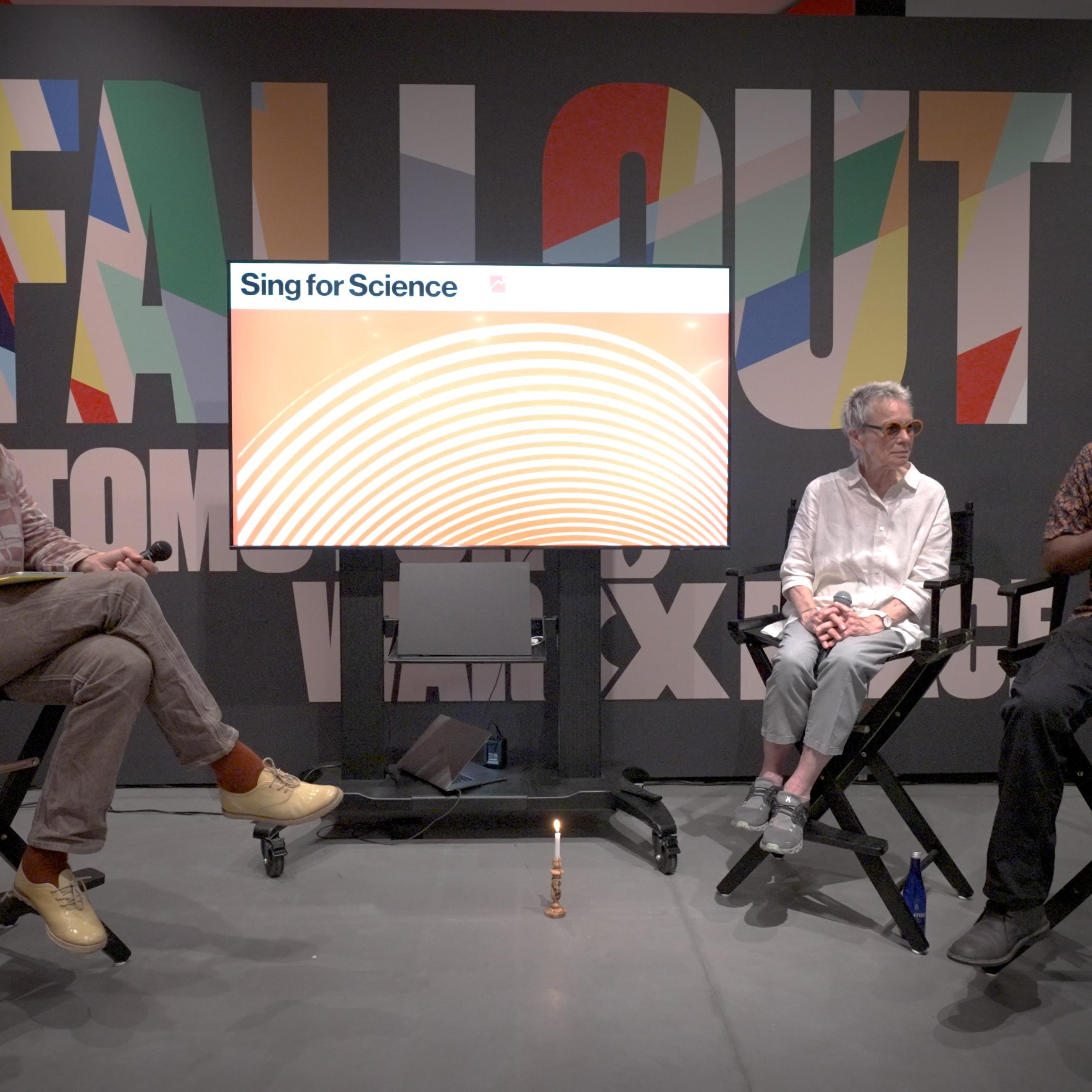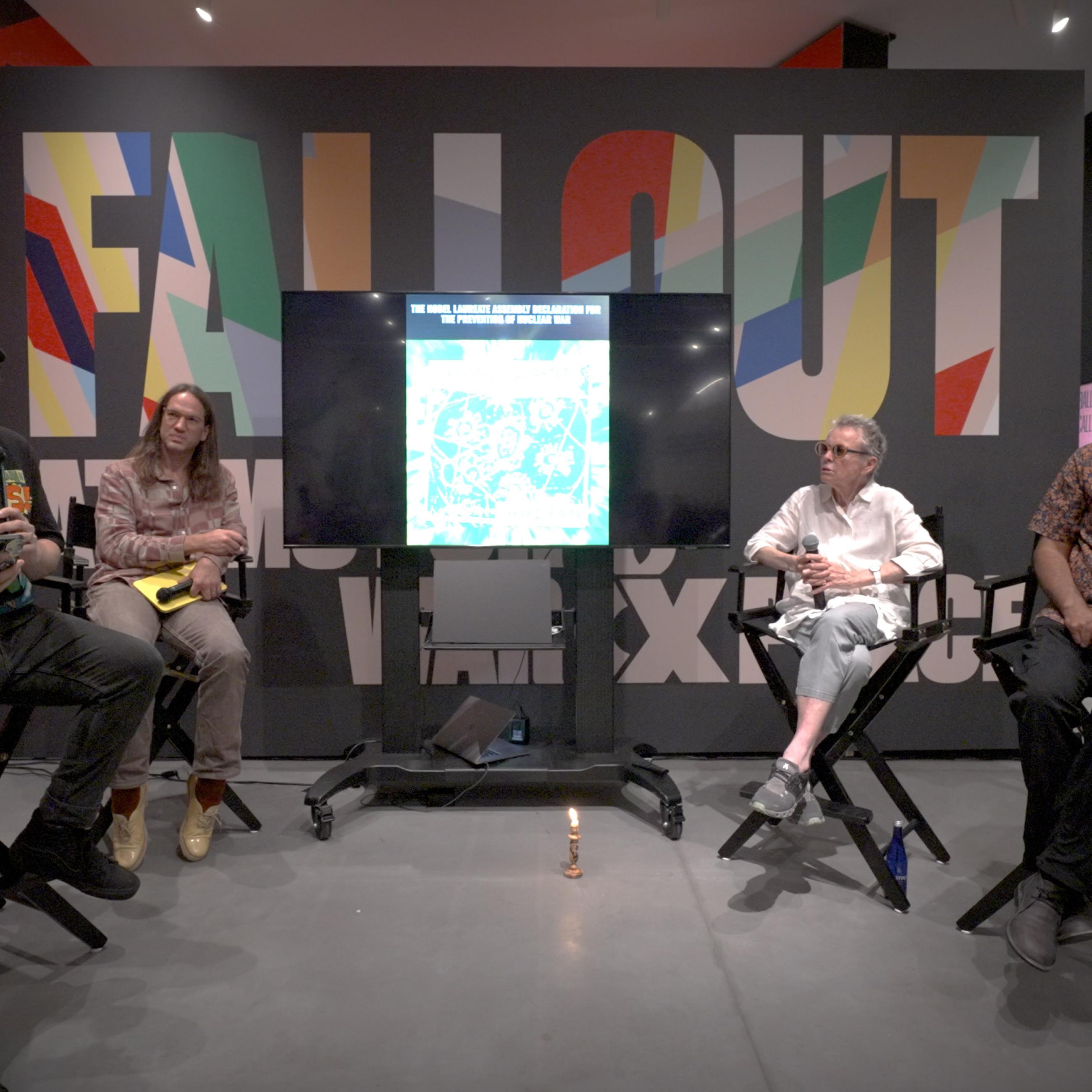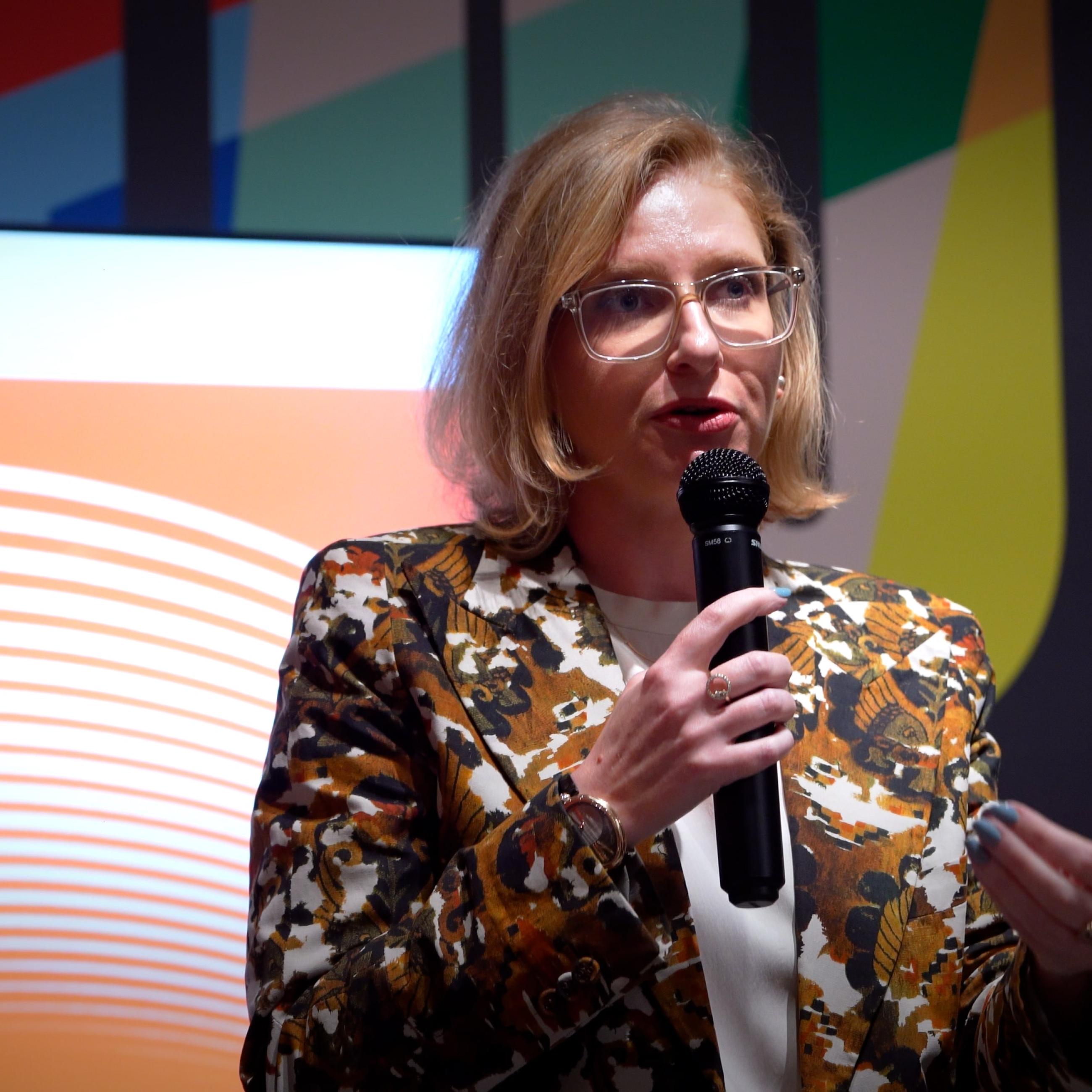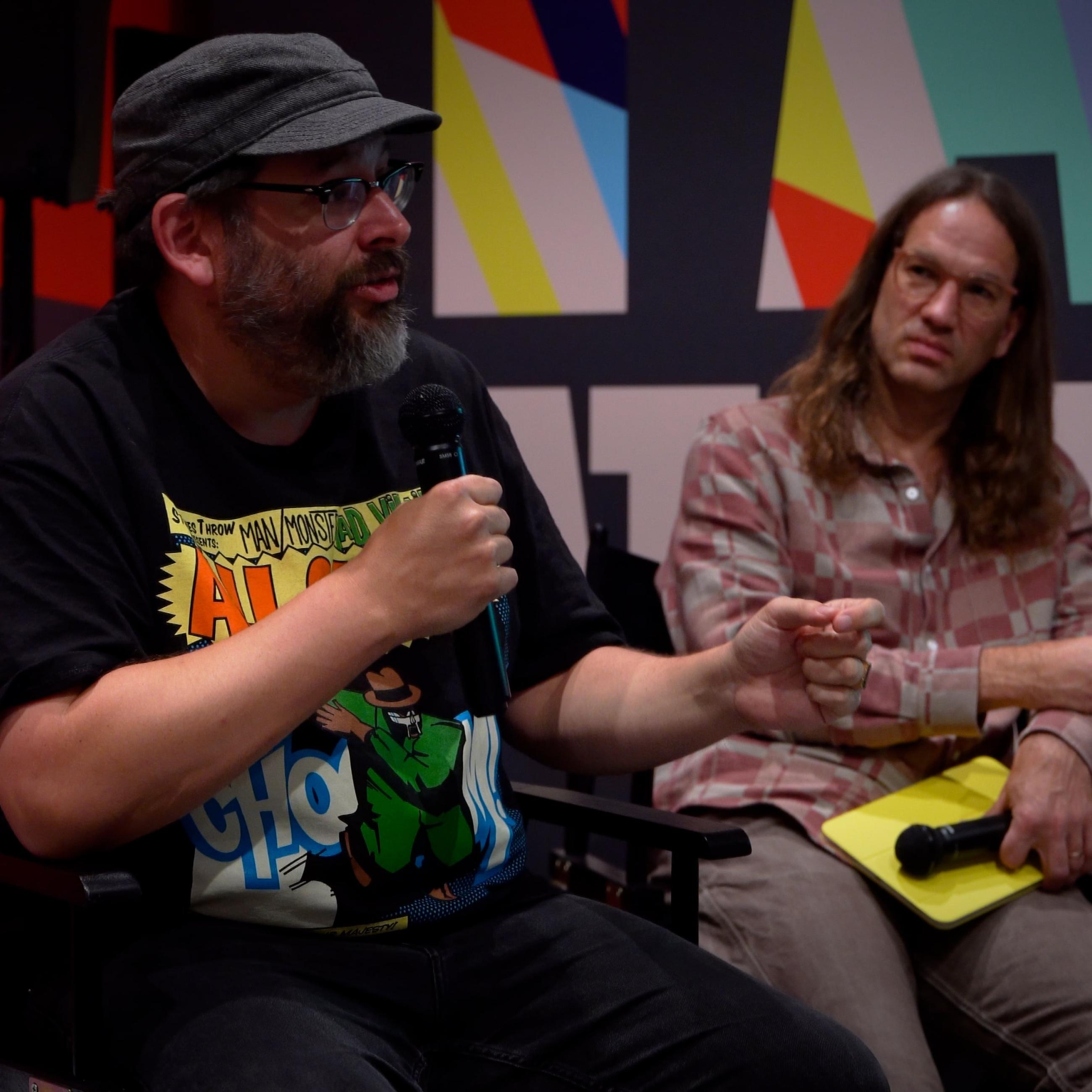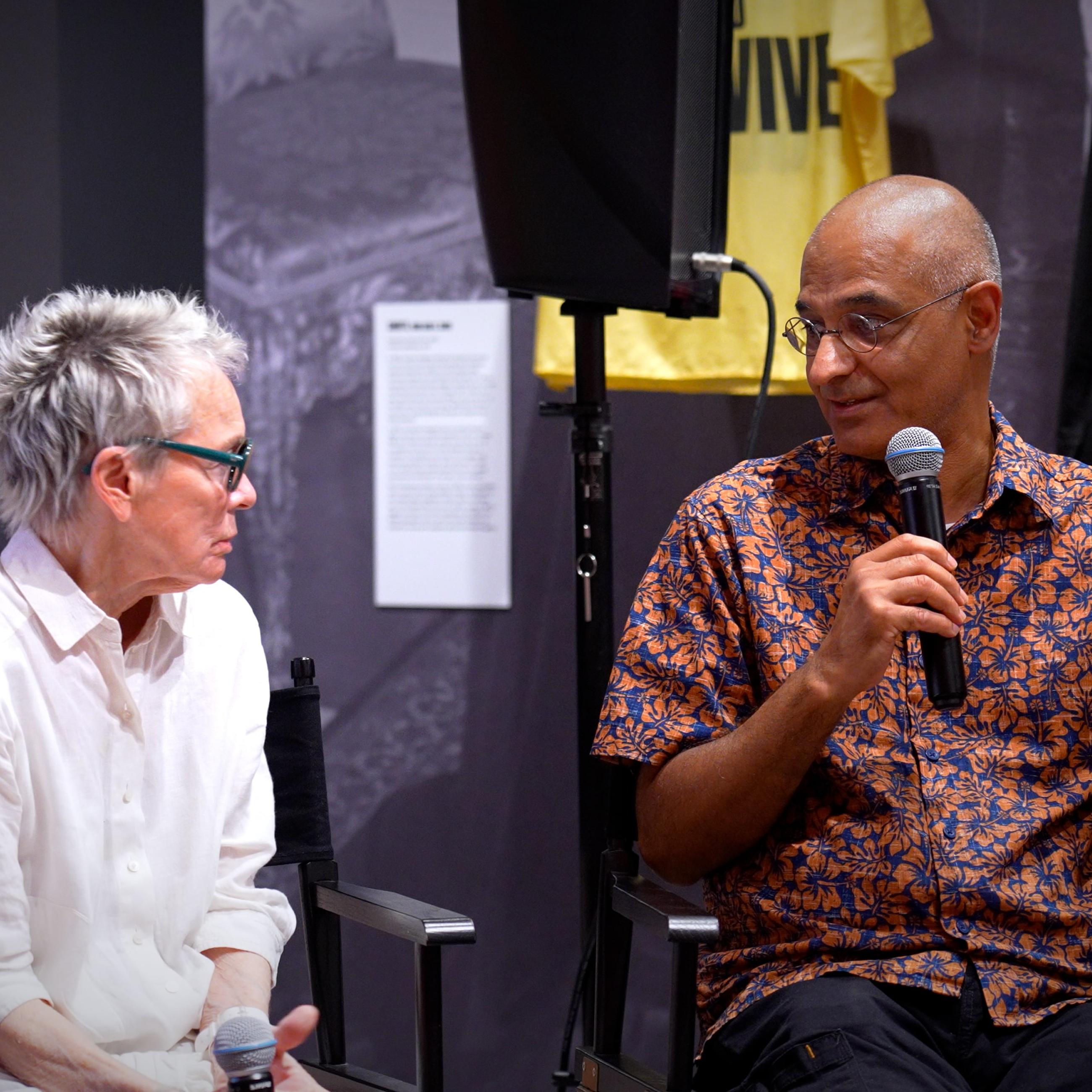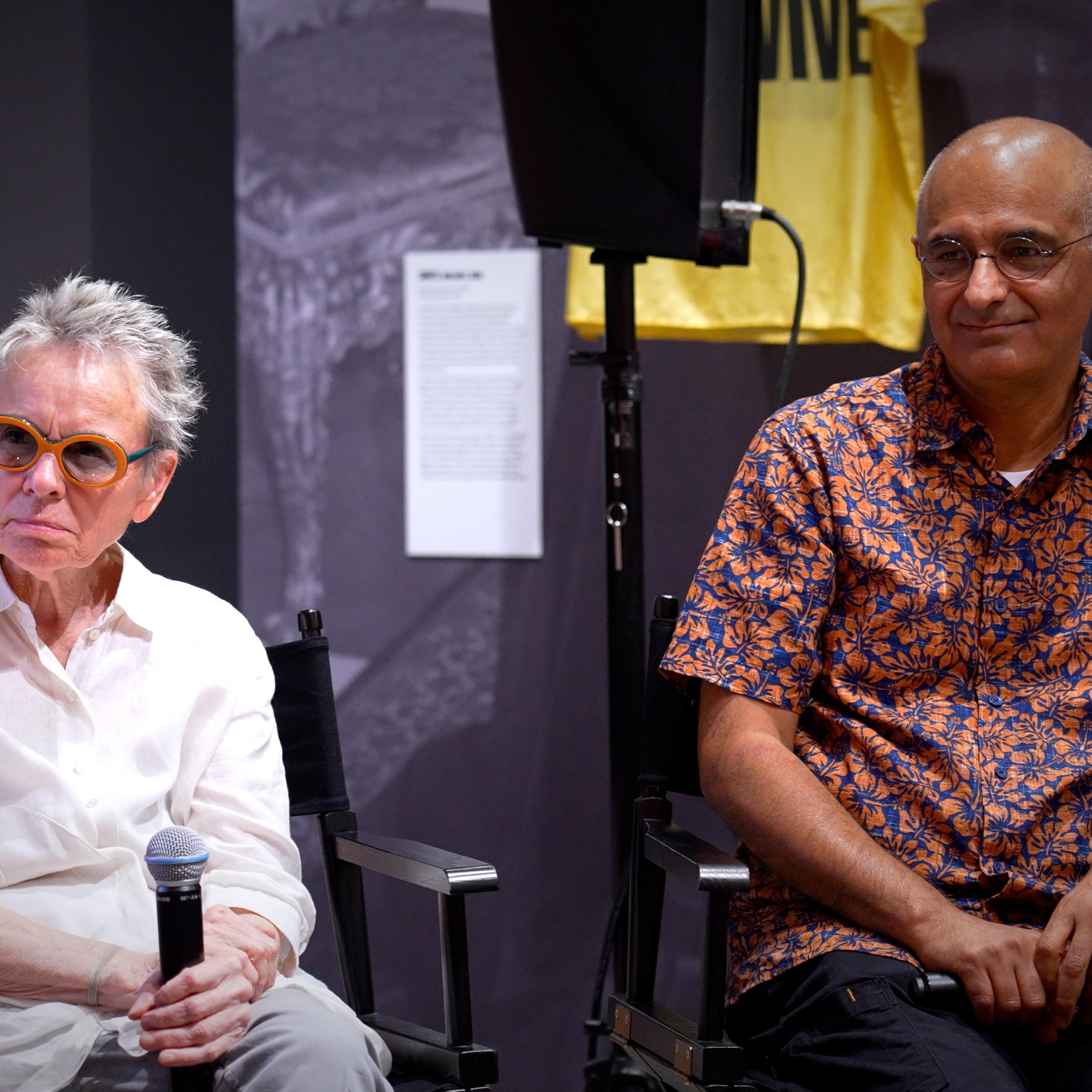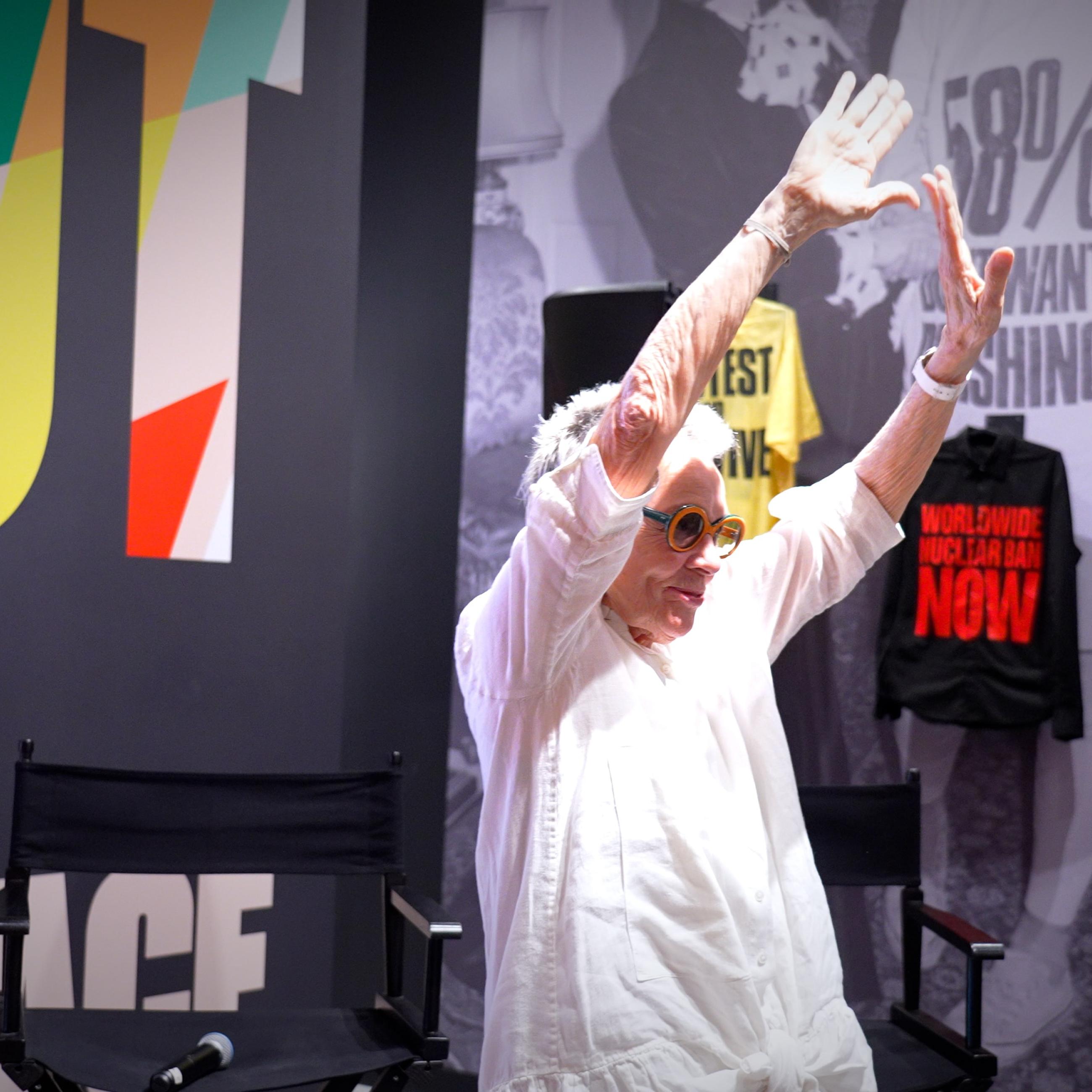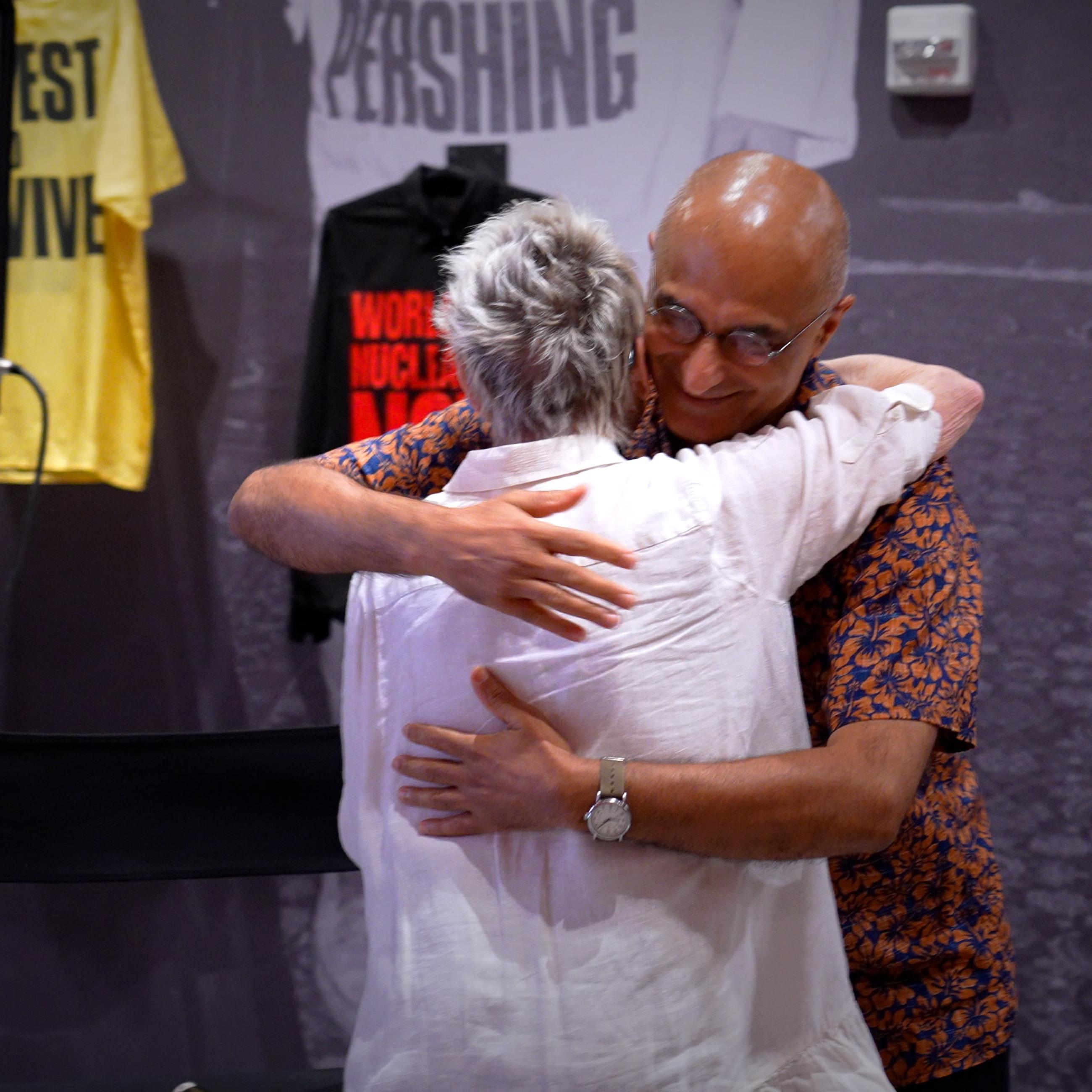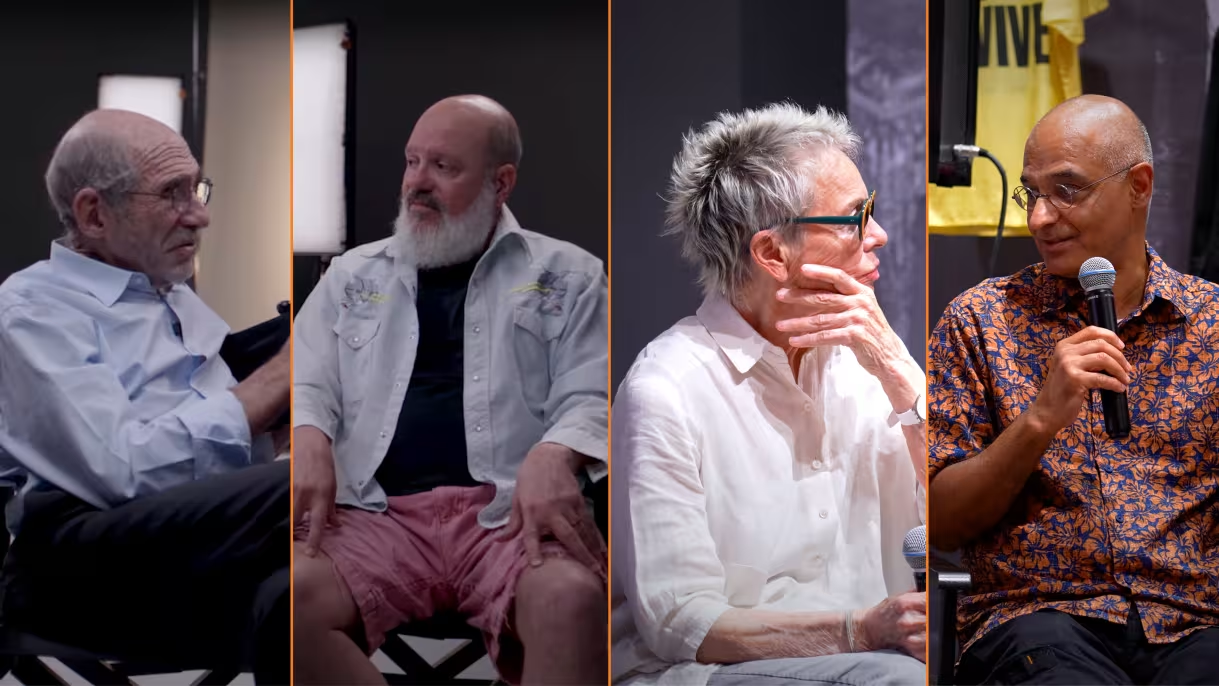

Communicating Science Through Comedy and Music
At a time when fewer than half of Americans see research scientists as good communicators, researchers at the Princeton School of Public and International Affairs are sharing their work through collaborations with figures known for connecting with their audiences: musicians and comedians.
In September, Zia Mian, a senior research scholar and co-director of Princeton SPIA’s Program on Science and Global Security, engaged avant-garde icon and Grammy-winning performance artist Laurie Anderson in a discussion of nuclear disarmament. Earlier in the summer, Michael Oppenheimer, the Albert G. Milbank Professor of Geosciences and International Affairs and the director of the School’s Center for Policy Research on Energy and the Environment, filmed a video about the effects of climate change with David Cross, the comedic actor and Emmy-winning writer and producer whose credits include the acclaimed television series “Arrested Development” and “Mr. Show with Bob and David.”
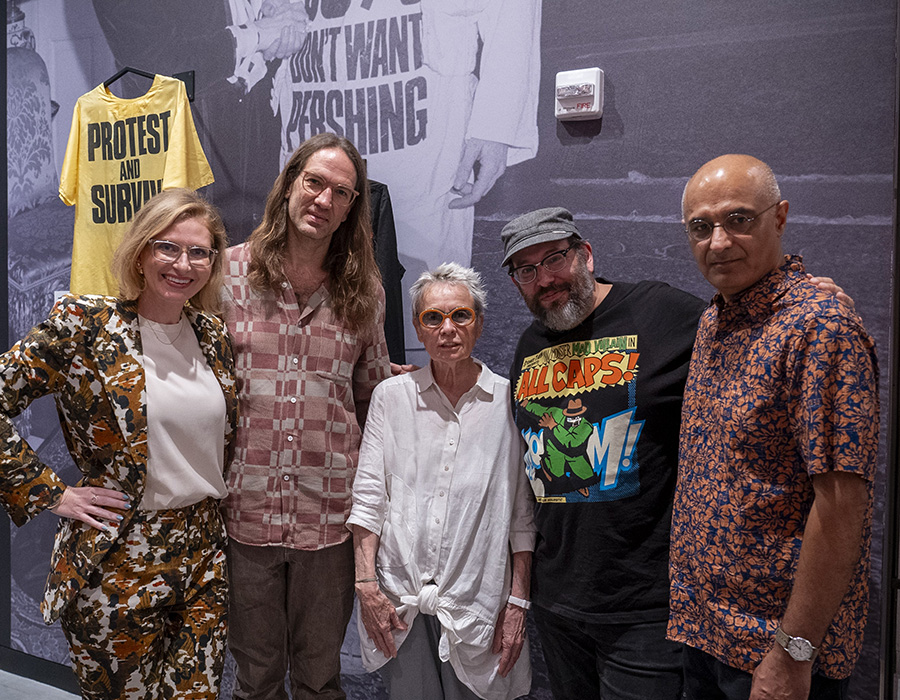
“Anything that can help the public understand these monumental issues we're dealing with, that facilitates their understanding, because it gets to them in a language they can understand, is all to the good,” Oppenheimer said. “And my view is, not so much that scientists have an obligation to communicate with the average person, but they should realize it's important that somebody do it.”
Mian’s conversation with Anderson was part of Sing for Science, a podcast series created and produced by singer/guitarist Matt Whyte in which musicians talk with scientists about the scientific notions embedded in their best-known works. Their talk, about Anderson’s ominous 1981 hit “O Superman,” was recorded live at the Poster House, in New York, in conjunction with the museum’s exhibit “Fallout: Atoms For War & Peace.” The event included producer Elia Einhorn of the activist music company Red Hot presenting the Kronos Quartet’s recent rendition of Bob Dylan’s 1962 song “A Hard Rain's a-Gonna Fall,” which features Anderson and other leading musicians in support of the Nobel Laureate Assembly for the Prevention of Nuclear War.
“There’s a lot of her work, both music and art, that speaks to the role of science in the world, that speaks to war, that speaks to violence, that speaks to peace,” Mian said. “It’s important to remember that musicians have long recognized the significance of nuclear weapons in shaping American musical culture.”
Mian placed his appearance with Anderson as just the latest in a decade-long campaign by SGS “to find ways of using culture to take our work to different kinds of audiences.” These include an award-winning virtual-reality film about nuclear war and a series of short videos, including “Plan A,” a simulation for a plausible escalating war between the United States and Russia, which has garnered 4.8 million views on YouTube.
“Given actual public-policy challenges, if you want public policy to be as democratic as possible, where as many people as possible understand what’s going on and can be part of that conversation, then you have to give them information in a way that they can access and engage with,” Mian said. “It shouldn’t be left to the experts to decide what’s the problem and what’s the answer, as if we were guardians of society.
“This is part of a new practice we’re trying to develop slowly. We hope that as it moves forward and to the extent that it’s successful, we can be an example to other groups and programs and Princeton and elsewhere that you can do this kind of work, and it has meaning for people.”
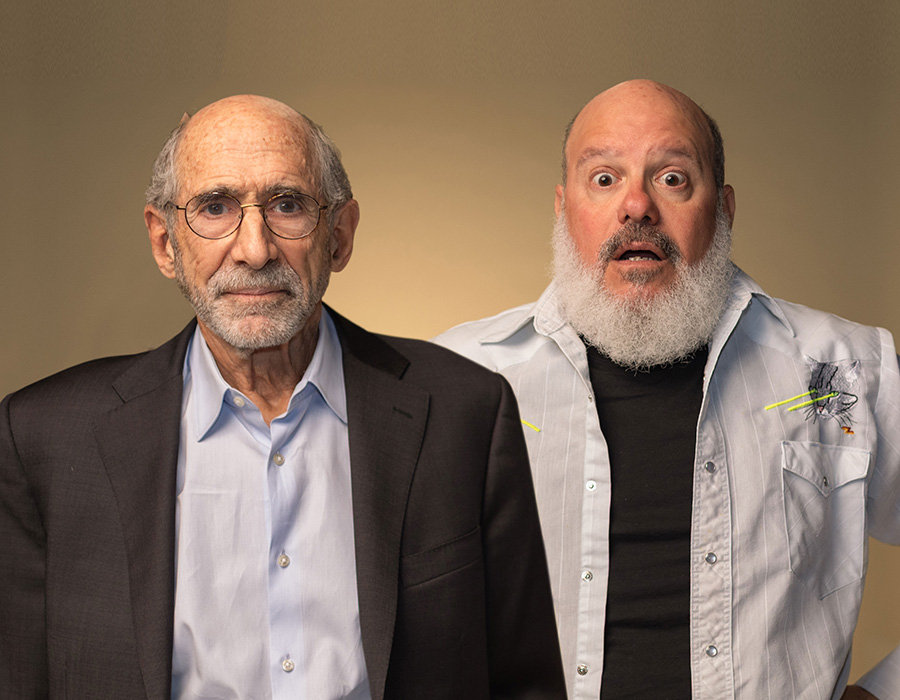
Oppenheimer’s shoot with Cross is a product of the Climate Science Breakthrough project, which seeks to develop new methods to help science foster action to alleviate climate change – in this case, using what the project calls “the world’s least serious people” to help translate complex research topics into more accessible concepts.
In their nearly 5-minute conversation, Oppenheimer, looking into the camera, presents data illustrating the reality of the climate crisis; the view then shifts to Cross, sitting about 20 feet away, looking into the camera and “translating” Oppenheimer’s thoughts using humorous and occasionally profane language. This happens several times over the first four minutes before the piece concludes with the two conversing face-to-face.
“Is there a role for humor to help get the message across?” Cross asks.
“Oh, there’s no doubt about it,” Oppenheimer replies. “You gotta talk to people like they’re normal people. And people have a sense of humor, even about some fairly grim things. Do you think a bunch of scientists are going to convince people? Scientists aren’t geniuses at communicating anything but science. We need more people like you.”
Oppenheimer, who previously appeared on Comedy Central’s “The Colbert Report,” noted that explaining research through a comedic lens, or even a religious lens, does not alter the science at the work’s core.
“It doesn’t mean changing the message,” he said. “For me, as a scientist, the truth is the same. But you figure out how to say it in vernacular, in a way that people that are attuned to a certain language and sensibility can understand.”


